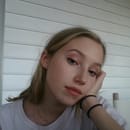These powerful and often devastating feminist poems by must-know female writers are a great way to feel inspired during the quarantine. This list was difficult to compile because of the incredible amount of talented female poets out there! I included a few lesser-known writers here to encourage you to further research their work; it’s always important to support women authors and have our stories told. I’m here to remind you of the power in poetry and womanhood!
-
Helen of Troy Does Countertop Dancing
by Margaret Atwood
-
Margaret Atwood is a very prolific author of many incredible books, including The Handmaid’s Tale (which is also an amazing show on Hulu if you haven’t watched) and over fifteen books of poetry. In this poem, Helen of Troy is trapped in a society that imposes skewed ideas of what it means to be an “ideal woman”, yet she ironically finds power and control through pole-dancing, a job often stigmatized as invalid, impure, and unwomanly. Atwood flips the story, exposing the BS in common ideas of self-respect and womanhood; Helen of Troy, the ‘ideal’ woman, the woman whose face “launched a thousand ships,” is a sex worker.
“The world is full of women
who’d tell me I should be ashamed of myself
if they had the chance. Quit dancing.
Get some self-respect
and a day job.
Right. And minimum wage,
and varicose veins, just standing
in one place for eight hours
behind a glass counter
bundled up to the neck, instead of
naked as a meat sandwich.
Selling gloves, or something.
Instead of what I do sell.
You have to have talent
to peddle a thing so nebulous
and without material form.
Exploited, they’d say. Yes, any way
you cut it, but I’ve a choice
of how, and I’ll take the money.
I do give value.
Like preachers, I sell vision,
like perfume ads, desire
or its facsimile. Like jokes
or war, it’s all in the timing.
I sell men back their worse suspicions:
that everything’s for sale,
and piecemeal. They gaze at me and see
a chain-saw murder just before it happens,
when thigh, ass, inkblot, crevice, tit, and nipple
are still connected.
Such hatred leaps in them,
my beery worshipers! That, or a bleary
hopeless love. Seeing the rows of heads
and upturned eyes, imploring
but ready to snap at my ankles,
I understand floods and earthquakes, and the urge
to step on ants. I keep the beat,
and dance for them because
they can’t. The music smells like foxes,
crisp as heated metal
searing the nostrils
or humid as August, hazy and languorous
as a looted city the day after,
when all the rape’s been done
already, and the killing,
and the survivors wander around
looking for garbage
to eat, and there’s only a bleak exhaustion.
Speaking of which, it’s the smiling
tires me out the most.
This, and the pretense
that I can’t hear them.
And I can’t, because I’m after all
a foreigner to them.
The speech here is all warty gutturals,
obvious as a slab of ham,
but I come from the province of the gods
where meanings are lilting and oblique.
I don’t let on to everyone,
but lean close, and I’ll whisper:
My mother was raped by a holy swan.
You believe that? You can take me out to dinner.
That’s what we tell all the husbands.
There sure are a lot of dangerous birds around.
Not that anyone here
but you would understand.
The rest of them would like to watch me
and feel nothing. Reduce me to components
as in a clock factory or abattoir.
Crush out the mystery.
Wall me up alive
in my own body.
They’d like to see through me,
but nothing is more opaque
than absolute transparency.
Look – my feet don’t hit the marble!
Like breath or a balloon, I’m rising,
I hover six inches in the air
in my blazing swan-egg of light.
You think I’m not a goddess?
Try me.
This is a torch song.
Touch me and you’ll burn.”
From Morning in the Burned House by Margaret Atwood. Copyright © 1995 by Margaret Atwood.
-
How to Triumph Like A Girl
by Ada Limón
-
Ada Limón is a contemporary female poet who has authored five books of beautiful poetry. This poem is special because of its themes of self-love and bodily autonomy; she flips the phrase “like a girl” in a positive light, and the connection of the narrator’s body to a racehorse brings power to the feminine experience.
“I like the lady horses best,
how they make it all look easy,
like running 40 miles per hour
is as fun as taking a nap, or grass.
I like their lady horse swagger,
after winning. Ears up, girls, ears up!
But mainly, let’s be honest, I like
that they’re ladies. As if this big
dangerous animal is also a part of me,
that somewhere inside the delicate
skin of my body, there pumps
an 8-pound female horse heart,
giant with power, heavy with blood.
Don’t you want to believe it?
Don’t you want to lift my shirt and see
the huge beating genius machine
that thinks, no, it knows,
it’s going to come in first.”
From Bright Dead Things (Milkweed Editions, 2015). Copyright © 2015 by Ada Limón.
-
Dead Girl Gang Bang
by Cate Marvin
-
Cate Marvin is an author I recently discovered. I admire her immensely for the fearless, powerful vulnerability of her writing. This poem is especially moving in its incredible demonstration of raw emotion. It beautifully articulates feelings of searing, life-long anger after the horrific experience of sexual assault. It really does speak for itself. **Sexual assault trigger warning**
“Though I can’t recall your last name
now, Howie, I’ve been penciling myself in
to your way back then, way back
when, in your gangbangland, she was
loose and gone, struggling up on a limb
to raise herself off from your bed, but lost,
fell back, let the all of you in again. Said
just trying to get out your room
was no use since she’d got her own
self in. Curbside-mind, I venture
you are still alive. Wondering what she’d
think of that, but, then, I don’t
know, can a ghost think when its body’s shot
itself in the head? Hell, just thinking about
it makes me wish I were dead. Just
some girl, you, then you letting your friends
shovel their coal-selves up into her, just some
person. I knew. Her mother’s now offering
a twenty-percent discount for crystal
healing therapy on her website. In high school,
she was a calm mother, dull job as telephone
operator, back in that town her dead
daughter and I always swore we
would leave, back in that town dead to me,
and me, I marry a man who mocks
me for crying. We-we-we, he calls out,
snickering in the gloom. Yet still I wear the dead
girl’s perfume. And I’ve got an accident
to report. Because it was all our centers,
uninvited, you rucked up inside, then bade your
friends park their reeking selves in the garage
of her feminine. What did you call it
back then? You balding fuck, you’ve forgot.
Sloppy seconds. Forgot her slippage, eyes dead
drunk spirals, face some fluid spilling down
your sheets. I’ve been where she’s been,
and I can be where you are now, switch my hips,
sashay into your office to see you any day now,
wearing her perfume. What pack animal
would you choose to be in your next life?
Every day, the marsupial clouds grow
hungrier for our reunion, the reunion I’ve been
packing for all my life. There is a swing set
and a girl in a dress who doesn’t know about this
next. First, she’s pretty. Finally, she’s done for.
So I took some pills to forget I knew you last
as friend. Then I learned the ways of your wiles,
how you did my girl who’s now dead in.”
Poetry (February 2015)
-
A water woman has no body
by Lisa Ciccarello
-
In this poem, Lisa Ciccarello (another poet I happily discovered recently) discusses the everyday battles of womanhood, dealing with themes of the female body and nature and just existing as a woman in a pressurized society. Motherhood is a touching topic here, as it exposes generational struggles as well.
“Emptiness is a blessing:
it can’t be owned if it doesn’t exist.
*
My father said to bloom but never fruit—
a small trickle
eating its way through stone.
*
I am one kind of alive:
I see everything the water sees.
I told you a turn was going to come
& turn the tower did.
What are the master’s tools
but a way to dismantle him.
*
Who will replace the blood of my mother in me—
a cold spring rising.
She told me a woman made of water
can never crack.
Of her defeat, she said
this is nothing”
Copyright © 2017 by Lisa Ciccarello. Originally published in Poem-a-Day on October 11, 2017, by the Academy of American Poets.
-
In Celebration of My Uterus
Anne Sexton
-
My list of women poets and their compelling feminist poems would not be complete without Anne Sexton. Much like the other poems in her prolific collection, this one discusses the taboo topic of the female body relating to self-love and freedom. The main ideas are a bit more obscure than the other poems here but nonetheless moving.
“Everyone in me is a bird.
I am beating all my wings.
They wanted to cut you out
but they will not.
They said you were immeasurably empty
but you are not.
They said you were sick unto dying
but they were wrong.
You are singing like a school girl.
You are not torn.
Sweet weight,
in celebration of the woman I am
and of the soul of the woman I am
and of the central creature and its delight
I sing for you. I dare to live.
Hello, spirit. Hello, cup.
Fasten, cover. Cover that does contain.
Hello to the soil of the fields.
Welcome, roots.
Each cell has a life.
There is enough here to please a nation.
It is enough that the populace own these goods.
Any person, any commonwealth would say of it,
‘It is good this year that we may plant again
and think forward to a harvest.
A blight had been forecast and has been cast out.’
Many women are singing together of this:
one is in a shoe factory cursing the machine,
one is at the aquarium tending a seal,
one is dull at the wheel of her Ford,
one is at the toll gate collecting,
one is tying the cord of a calf in Arizona,
one is straddling a cello in Russia,
one is shifting pots on the stove in Egypt,
one is painting her bedroom walls moon color,
one is dying but remembering a breakfast,
one is stretching on her mat in Thailand,
one is wiping the ass of her child,
one is staring out the window of a train
in the middle of Wyoming and one is
anywhere and some are everywhere and all
seem to be singing, although some can not
sing a note.
Sweet weight,
in celebration of the woman I am
let me carry a ten-foot scarf,
let me drum for the nineteen-year-olds,
let me carry bowls for the offering
(if that is my part).
Let me study the cardiovascular tissue,
let me examine the angular distance of meteors,
let me suck on the stems of flowers
(if that is my part).
Let me make certain tribal figures
(if that is my part).
For this thing the body needs
let me sing
for the supper,
for the kissing,
for the correct
yes.”
Anne Sexton, “In Celebration of My Uterus” from The Complete Poems of Anne Sexton (Boston: Houghton Mifflin, 1981). Copyright © 1981 by Linda Gray Sexton and Loring Conant, Jr.


